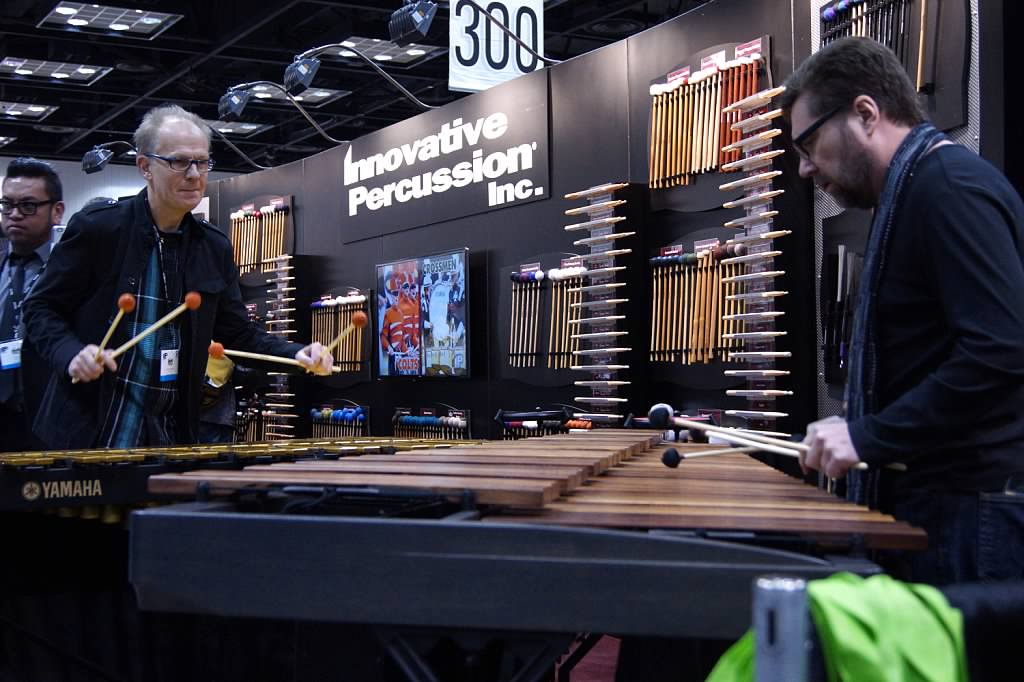Edward Kennedy “Duke” Ellington (1899-1974) is one of the best known names in jazz of the 20th Century, but he didn’t particularly like being called a jazz musician. Professor C. Michael Hawn, University Distinguished Professor Emeritus of Church Music of the SMU Perkins School of Theology, writes that Ellington “resisted the designation of ‘jazz’ as too narrow for his compositions and preferred that his works be known just as ‘music.’”
Many musicians take issue with musical categories, particularly those surrounding the word jazz. While speaking to a meeting of the Society for Neuroscience in a session titled “Dialogues between Neuroscience and Society,” guitarist and master musician Pat Metheny noted that “basically, my job description is professional improvisor, and while the word ‘jazz’ has some utility as a kind of shorthand to invoke a certain broad cultural tradition—within the community of musicians that I am lucky to be a part of, we’re mostly unlikely to use that word as having any singular meaning beyond those cultural connotations.”
But consumers seem to prefer labels; they like to put music into tidy bins that were created years ago at record stores or CD shops, for awards shows, for grant applications, and now on Spotify, YouTube, and other streaming platforms. These categories help consumers quickly locate the music they like and to just as quickly dismiss anything they don’t (or at least think they don’t) want to hear. Heaven-forbid discovering something new by accident.
Metheny adds that “most people have a very limited bandwidth of what they are willing to consume as music listeners.” And that is perhaps the most unfortunate thing about labels. Metheny continues; “It regularly happens that people are brought to my concerts—most of them against their will, and then they come up afterwards and tell me that they had no idea that this music existed.” Sigh…
I too consider myself an improvising musician, but I am happily not attached to any musical genre, which is what makes collaborations with other likewise unaffiliated musicians so much fun. For many years, I have improvised with Swedish mallet artist, Anders Åstrand. We have a special bond because we both trade in classical, contemporary, popular, folk, and jazz influenced currencies, and we enjoy collecting and trading them with each other. When we are improvising, we can be inspired by classical music one minute then channeling jazz the next. Minimal, comical, or just plain kooky—nothing is out of bounds.

The problem is that most people conflate the words jazz and improvisation. Think of it like this; while jazz music is often improvised, not all improvised music is jazz. [I’ll wait…]
Nothing was out of bounds for Ellington either, which brings us to the composition Come Sunday. In 1942 Ellington and his orchestra were engaged for a Carnegie Hall concert that his manager had set up only a month prior. This caused Ellington to quip; “I don’t need time—I need a deadline!” Ellington met that deadline with an extensive new composition titled Black, Brown, and Beige. Each color represents a period of black history in America using what Ellington described as “tone parallels” for each period. According to JazzStandards.com, “Come Sunday is what is now known as the 32-bar, AABA-form song (which Ellington wrote for alto saxophonist Johnny Hodges), but originally it was part of a 12-minute portion of the first section, ‘Black.’”
And what did the critics think? Well, they hated it. They thought that Ellington had “deserted” jazz in favor of “serious” (meaning classical) music, and on the other side, classical music critics didn’t think Black, Brown, and Beige rose to the level of good “serious” music.
K. J. McElrath, musicologist for JazzStandards.com writes: “Caught in the cross-fire, Ellington was clearly upset and soon after began to utilize the term ‘beyond category’ for his music rather than using the word jazz. It’s clear in retrospect that neither critical camp understood what Duke was attempting, and he was so disturbed by the turn of events that it would be several years before he would attempt anything similar.”
Such is the result of labels, critics, and those with narrow bandwidths.
As a song, Come Sunday has been sung, played, and recorded by many artists. This is partly because it is a great tune with a beautiful message. Professor Hawn writes: “Ellington once said, ‘By and large, jazz has always been like the kind of a man you wouldn’t want your daughter to associate with.’ Yet, this master of jazz has a hymn in the United Methodist Hymnal!”
Ellington was indeed beyond category. He didn’t like labels—musical or otherwise. He once said, “I don’t believe in categories of any kind, and when you speak of problems between blacks and whites in the U.S.A., you are referring to categories again.’”
Come Sunday has now become a standard in the repertoire that beautifully evokes the Black spiritual on both a musical and emotional level. Mahalia Jackson recorded a version with lyrics, and today both instrumental and vocal versions are still popular among diverse audiences.
The words of Come Sunday also provide a measure of hope and assurance during this time of angst, unrest, and evil in the world. Dr. Hawn writes that “the song is ultimately about the providence of God in all our lives. The refrain addresses God directly, ‘Lord, dear Lord above, God Almighty, God of love,’ and then makes a petition, ‘please look down and see my people through.’ The stanzas point to hope and heaven, concluding that ‘With God’s blessing we can make it through eternity.’”
And as we reach the second anniversary of the beginning of the COVID-19 lockdowns, we would do well to take Mr. Ellington’s words to heart.
Lord, dear Lord above, God almighty
God of love, please look down and see my people through
Lord, dear Lord above, God almighty
God of love, please look down and see my people through
I believe that God put sun and moon up in the sky
I don’t mind the gray skies
‘cause they’re just clouds passing by
Lord, dear Lord above, God almighty
God of love, please look down and see my people through
References:
Hawn, C. Michael. “Come Sunday” reflects Duke Ellington’s faith & sacred jazz tradition. History of Hymns. (Accessed February 27, 2022)
https://www.umcdiscipleship.org/resources/history-of-hymns-come-sunday-reflects
McElrath, K. J. Come Sunday. JazzStandards.com. (Accessed February 27, 2022) https://www.jazzstandards.com/compositions-1/comesunday.htm
Metheny, Pat. Dialogues between Neuroscience and Society. Society for Neuroscience: Music and the Brain with Pat Metheny, 2018. (Accessed February 27, 2022) https://youtu.be/yhAbNv1gJT8
Listening:
